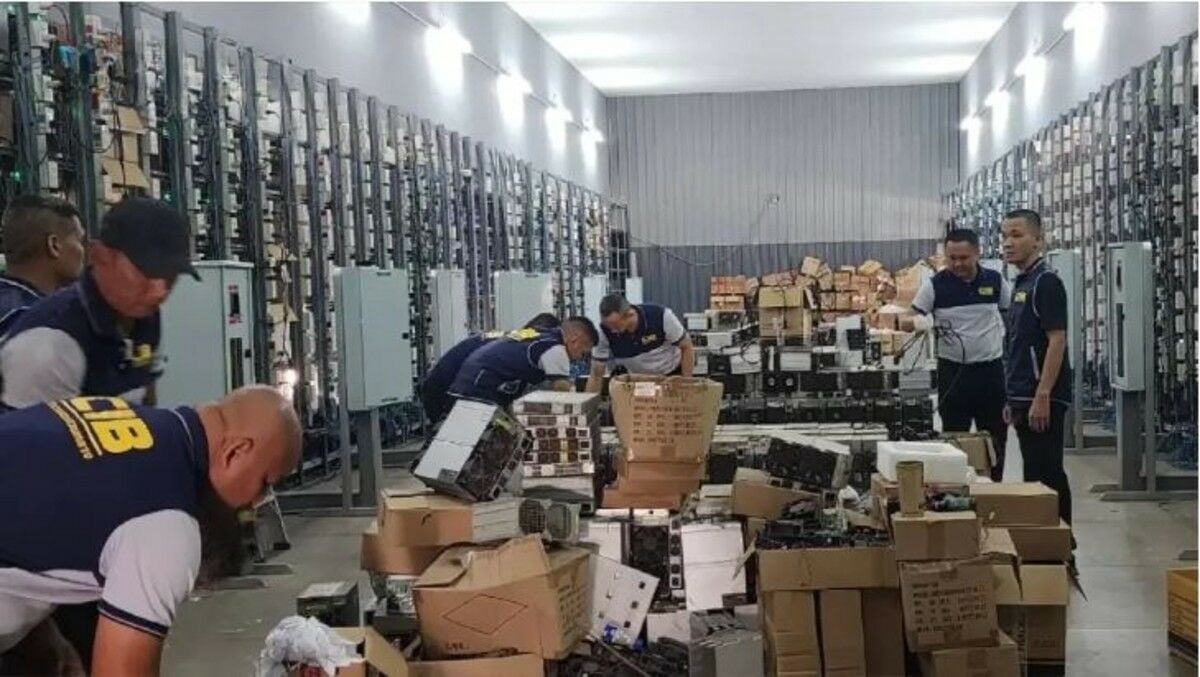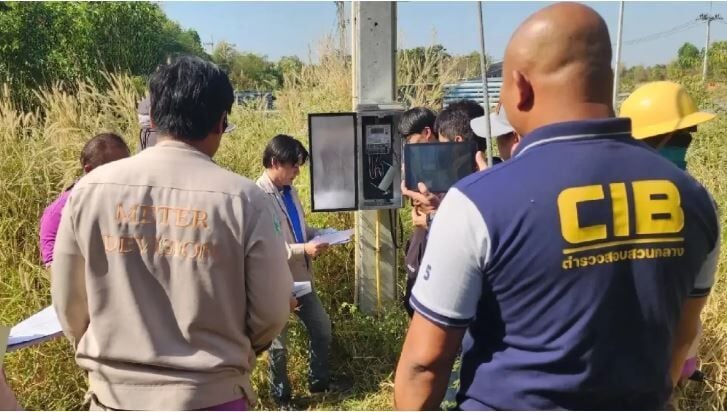Thai police bust Chon Buri bitcoin mining scam stealing electricity

Thai police uncovered a high-tech heist in Chon Buri, where nearly 1,000 bitcoin mining machines were illegally powering up at the expense of the public.
A joint operation by the Crime Suppression Division (CSD) and the Provincial Electricity Authority (PEA) today exposed a bitcoin mining setup in Chon Buri’s Phanat Nikhom district that had been tampering with its power meter to steal electricity worth hundreds of millions of baht.
CSD officers and PEA officials confiscated 996 bitcoin mining machines and related equipment from the premises, making it one of the largest busts of its kind in the country.
PEA estimates suggest the operation siphoned off electricity valued at hundreds of millions of baht, though the precise figure remains under investigation. A staff member at the site confessed that the theft was carefully timed to occur only at night, with the power meter operating correctly during daylight hours to avoid detection.
Bitcoin mining, the process of solving complex mathematical equations to validate cryptocurrency transactions, demands immense computational power—and electricity. The Chon Buri operation found a way to skirt these costs by tapping into the power grid illicitly, reported The Nation.

The CSD has yet to identify the individuals or company behind the operation but is preparing to seek arrest warrants.
“This kind of theft not only costs the economy millions but also strains the electricity supply.”
In related news, Thai police apprehended a father and son involved in a significant electricity theft operation in Surat Thani, costing approximately 1 million baht monthly, to support their bitcoin mining business.
In Thailand, Bitcoin mining is legal and not specifically regulated. However, the Thai Revenue Department considers mining analogous to manufacturing operations, making it subject to taxation under Section 40(8) of the Revenue Code.
This classification implies that income generated from mining activities is taxable, according to Global Legal Insights.
Latest Thailand News
Follow The Thaiger on Google News:


























